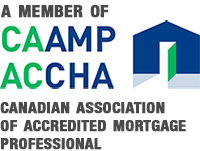


allMy financial institution wouldn’t give me the money I needed to finish my project although I had invested a lot and was only looking to borrow 50% value of the property. I contacted Jesse and he had me approved within 24 hours and I had the money in my bank account within 6 days.
JESSE BRUN
Mortgage IntelligenceLicense #10428
Mortgage Broker (NB)
Mortgage Agent Level 2 (ON)

Home Equity Line of Credits East Gwillimbury
Home Equity Line of Credits in East Gwillimbury: What You Need to Know
If you're a homeowner in East Gwillimbury, you may have heard of Home Equity Line of Credits. These loans are a popular way to tap into the equity you've built up in your home and use it for a variety of purposes, from home renovations to debt consolidation. In this article, we'll go over the basics of Home Equity Line of Credits, how they work, and how they can benefit you as a East Gwillimbury homeowner.
What is a Home Equity Line of Credit?
A Home Equity Line of Credit is a type of loan that allows you to borrow money against the equity you've built up in your home. Equity is the difference between the current value of your home and the amount of any outstanding mortgage or other liens. For example, if your home is currently valued at $400,000 and you have a mortgage balance of $200,000, you have $200,000 in equity.
With a Home Equity Line of Credit, you can borrow a portion of that equity as a lump sum, usually at a fixed interest rate. You'll then repay the loan over a set period of time, typically 15 to 30 years, in equal monthly installments. A Home Equity Line of Credit is essentially a mortgage.
How Can You Use a Home Equity Line of Credit?
One of the great things about Home Equity Line of Credits is that you can use the money for just about anything. Some common uses for Home Equity Line of Credits include:
- Home renovations or repairs
- Debt consolidation
- Paying for college tuition or other educational expenses
- Starting a small business
- Covering unexpected expenses or emergencies
What Are the Benefits of a Home Equity Line of Credit?
There are several benefits to taking out a Home Equity Line of Credit in East Gwillimbury, including:
- Lower interest rates: Because Home Equity Line of Credits are secured by your home, they typically have lower interest rates than unsecured loans, such as credit cards or personal loans.
- Tax deductions: In some cases, the interest paid on a Home Equity Line of Credit may be tax deductible. However, it's important to consult with a tax professional to determine whether you're eligible for this deduction.
- Flexibility: Unlike a traditional mortgage, which requires you to use the funds to purchase a home, a Home Equity Line of Credit can be used for a variety of purposes.
In addition to using Home Equity Line of Credits to pay for large expenses or consolidate debt, they can also be used to make home improvements. Homeowners can use the equity in their homes to fund renovations and upgrades that can increase the value of their property.
Some common home improvements that homeowners use Home Equity Line of Credits for include kitchen and bathroom remodels, adding a new room or space, replacing roofing or siding, upgrading HVAC systems, or installing new flooring. These improvements can not only increase the value of the home but also improve the homeowner's quality of life.
When considering a Home Equity Line of Credit for home improvements, it's important to keep in mind that the loan amount should not exceed the projected increase in the value of the home. This will help ensure that the investment is worth it and that the homeowner can recoup the costs when they eventually sell the home.
Our mortgage office can help homeowners in East Gwillimbury navigate the process of obtaining a Home Equity Line of Credit for home improvements. We can assess the value of the home and provide guidance on what improvements may be the best investment for the homeowner's specific situation. We can also help with the application process and provide options for repayment terms that work for the homeowner's budget.
It's important to note that while Home Equity Line of Credits can be a useful financial tool, they do come with risks. If a homeowner defaults on the loan, they may be at risk of losing their home. It's crucial to carefully consider the decision to take out a Home Equity Line of Credit and ensure that the repayment plan is manageable.
At our mortgage firm, we take the time to discuss the risks and benefits of Home Equity Line of Credits with our clients to help them make informed decisions. We strive to provide personalized service and support throughout the loan process to ensure that our clients are comfortable and confident with their financial decisions.
In conclusion, Home Equity Line of Credits can be a valuable tool for homeowners in East Gwillimbury who need to finance large expenses or make home improvements. They offer competitive interest rates and flexible repayment terms, making them a popular choice for many homeowners. Our mortgage office can help homeowners navigate the process of obtaining a Home Equity Line of Credit and provide guidance on how to use the funds responsibly. Contact us today to learn more about how a Home Equity Line of Credit can benefit you.
How Do You Apply for a Home Equity Line of Credit?
If you're interested in taking out a Home Equity Line of Credit in East Gwillimbury, the first step is to contact our mortgage office at (888)878-4660 or fill out the short form on the top left-hand side of our website. We'll work with you to determine whether a Home Equity Line of Credit is right for your needs and help you through the application process.
Below is a list of words that are associated with getting a home mortgage loan. We are providing you the list along with their definitions to help your mortgage journey:
Lien: a legal claim against a property used as collateral for a debt.
Homeowner's insurance: insurance that protects against damage to a home or other property, typically required by lenders as a condition of a mortgage loan.
Points: fees paid by the borrower to the lender at closing in exchange for a lower interest rate.
Interest-only mortgage: a type of mortgage where the borrower only pays interest on the loan for a certain period of time before starting to pay off the principal.
Refinance: the process of replacing an existing mortgage with a new one, typically to obtain a lower interest rate or more favorable terms.
Title search: a process in which a title company reviews public records to ensure that there are no outstanding liens or other claims against a property.
Home equity loan: a type of loan where the borrower borrows against the equity in their home.
Home equity line of credit (HELOC): a line of credit that allows the borrower to borrow against the equity in their home.
Equity: the difference between the value of a property and the outstanding balance of any mortgages or other liens against the property.
Fixed-rate mortgage: a type of mortgage where the interest rate remains the same for the entire term of the loan.
Adjustable-rate mortgage (ARM): a type of mortgage where the interest rate can change over time, typically after an initial fixed-rate period.
Debt-to-income ratio: a comparison of a borrower's monthly debt payments to their monthly income, used to determine their creditworthiness.
Pre-approval: a process where a lender reviews a borrower's financial information and determines how much they are qualified to borrow.
Appraisal: a process where a professional appraiser determines the value of a property.
Title: the legal right to own and use a property.
Mortgage insurance: insurance that protects the lender in case the borrower defaults on the loan.
Mortgage broker: a professional who helps borrowers find and obtain mortgage loans from various lenders.
Reverse mortgage: a type of mortgage where the borrower receives payments from the lender instead of making payments, typically used by senior citizens to access the equity in their homes.
Second mortgage: a type of mortgage where the borrower uses their home as collateral to take out a second loan


